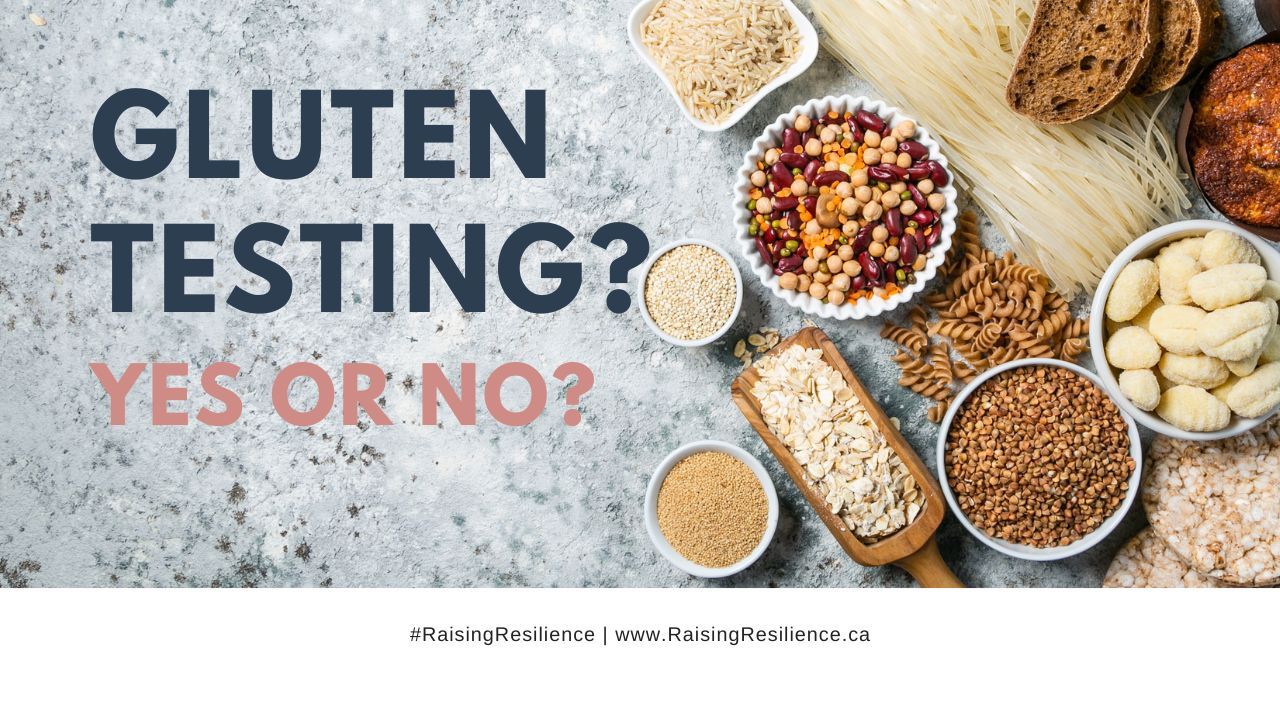Types Of Gluten Testing For Kids

There are two types of tests that can help you decide if it's worth your time and energy to take gluten out of your child's diet - a genetic test, and an antibody test.
They're very different, so let's go through some key points.
Celiac Predisposition
A genetic test will tell you about predisposition to Celiac Disease. Not whether your child has it, but whether they are at high risk for developing it.
Celiac Disease is an autoimmune disease triggered by gluten. The majority of people with diagnosed Celiac Disease possess one of two genetic markers: HLA-DQ2 or HLA-DQ8.
Approximately 90-95% of celiac patients have HLA-DQ2, while the remainder have HLA-DQ8.
Now, having one of these genes doesn't mean you WILL develop CD - about 30-40% of the general population may have one of these genes, but only some of them will actually develop celiac disease. It just means you are prone to it.
Environmental factors, other genetic elements, gut microbiota, and even viral infections could trigger celiac disease with or without predisposition.
But if you want to know your child's predisposition to developing this gluten-related disease you'll want a genetic test. You may see this on the market as a saliva test, stool, or blood testing.
Celiac Testing
In conventional medicine, a diagnosis of Celiac usually starts with a blood test looking for antibodies to gliadin, which is a type of gluten. If there are antibodies present, either a diagnosis will be made or there will be a follow-up biopsy to determine whether the intestine has been damaged.
It's important for parents to know that Celiac Disease is a progressive disease. So if you checked your child when they were five and they were clear for CD, they could still develop it at age ten.
What If It's Not Celiac Disease?
Then there's Non-Celiac Gluten Sensitivity (NCGS). This is a diagnosis given when gluten causes symptoms and irritation but there are no signs of the autoimmune activity of CD.
It wasn't until 2011, that an international group of experts convened in Oslo to develop specific criteria for the diagnosis of NCGS, distinguishing it from celiac disease and wheat allergy.
So NCGS is pretty "young" as a condition and still not everyone thinks it's a thing.
When I check the kids I work with for clues about NCGS I find them in about 9/10 of cases. For these kids, inflammation caused by gluten is often a big part of their story and when we take it out they feel a heck of a lot better as inflammation comes down.
How To Test For Non-Celiac Gluten Sensitivity?
To find out about NCGS you'll want an antibody test that looks at IgG and IgA response, and you want to look at more than just Gliadin - the type of gluten reaction doctors will look for to determine Celiac Disease.
A deeper look to see if the body is mounting an IgG or IgA immune response to a variety of different wheat and gluten peptides is what you want. I like the Wheat Zoomer test from Vibrant Wellness - it gives insight into how the body is reacting to wheat and also gives an assessment of the state of intestinal integrity. This can tell you if the inflammation and immune activation being caused by gluten makes it worth your time, energy, and expense of taking it out for a while.
The Bottom Line on Gluten Testing
My goal when I work with families is to identify and reduce inflammation so a child's nervous system can stop being on such high alert. Food can be a source of inflammation and gluten is probably the most common inflammatory food trigger. For most families, I suggest removing it for at least a trial while we dig to find other sources of inflammation.
If you want some solid data about gluten, a combination of genetic and antibody testing is your best bet. If you can only afford one, I'd go with the antibody test.
--------------
Related posts:
https://www.jesssherman.com/blog/child-mental-health
https://www.jesssherman.com/blog/food-allergies-are-igg-tests-useful
https://www.jesssherman.com/blog/celiac-why-taking-out-gluten-might-not-be-enough
https://www.jesssherman.com/blog/do-gluten-and-sugar-impact-a-child-behaviour






